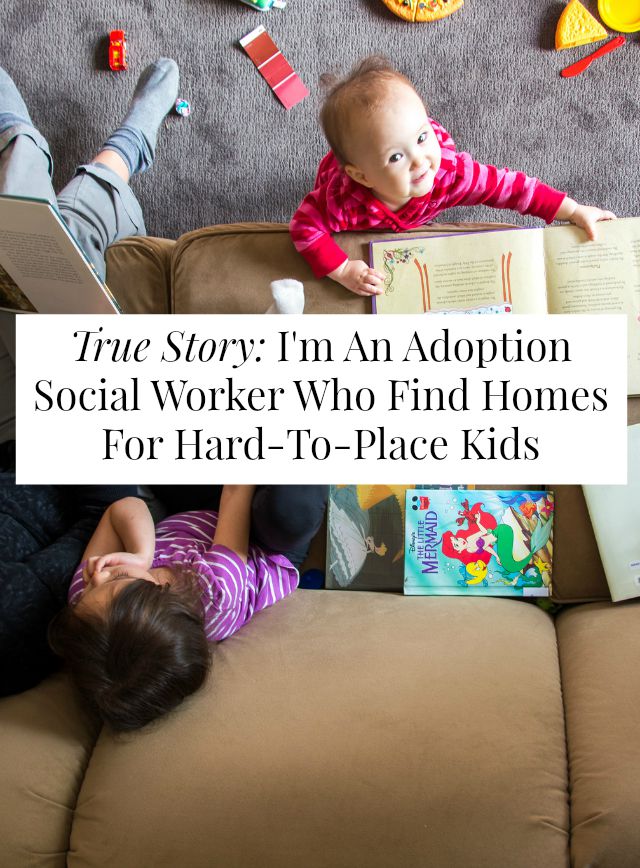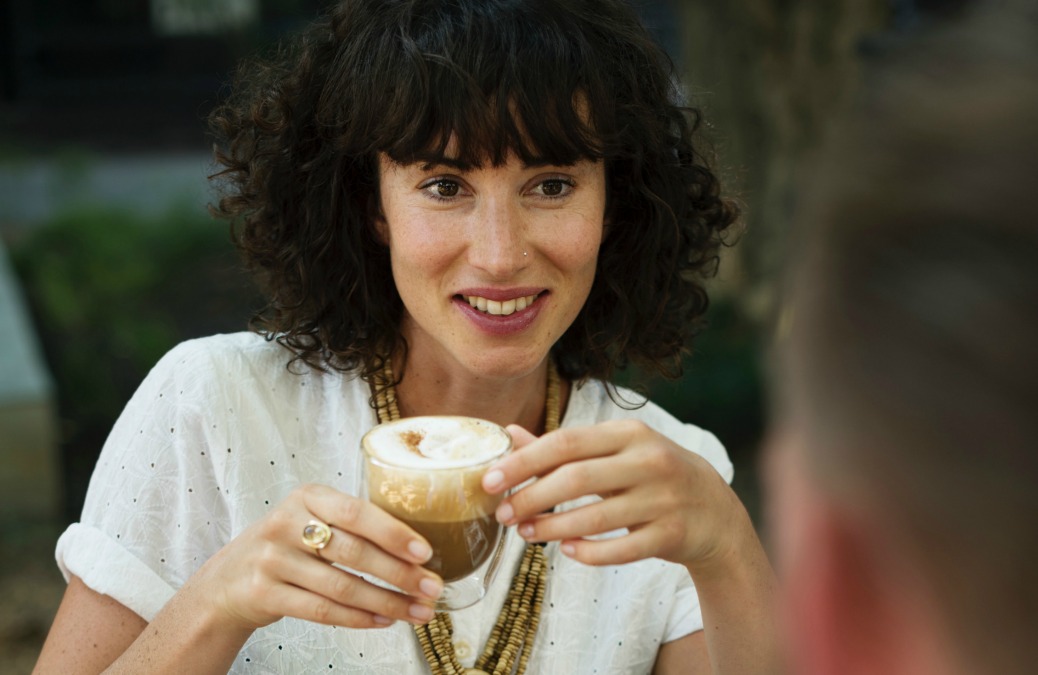
Tell us a bit about yourself!
My name is Michelle. I grew up in Boulder, Colorado and moved to Minnesota (following love) in 1990. I’m 46 years old and have been somehow involved with the child welfare system for 31 years. I was a foster kid from age 15-18.
What do I do for fun? Sometimes not as much as I should do, I suppose. This work can be pretty draining and I don’t often make as much space for fun as I should. When I do make it happen, I enjoy gardening (or rather moving plants around in my yard, hoping that ‘next year’ it will look great), paddling around the Boundary Waters in northern Minnesota and having good conversation with friends. I love to travel and have been really lucky to see quite a few places in the world. This year I hope to attend more theater and hear more live music.
How did you find yourself in this career?
I sort of ‘fell into’ a career in the child welfare system. Like a lot of young people whose lives have been touched by trauma and placement, I think I grew up believing those experiences made me uniquely qualified to become a social worker. I’m not sure I considered other options, which may have been a good thing or a bad thing…not so sure 🙂
What sort of schooling did you go through to become a social worker?
I have an undergraduate degree from Colorado College in Sociology and a Masters in Social Work from Augsburg College in Minneapolis. My licensure (LISW) is not clinical, and lately I’m thinking I’d like to go back and get that license so I can help individual youth and families access some of the newer, more progressive holistic approaches to healing from trauma. There is some amazing brain research and strategies for ‘re-organizing’ pathways in the brain to help with self-regulation and, frankly, being able to make healthy choices for oneself.
How did you develop this area of speciality – placing hard to place kids?
It’s funny, it took me awhile to understand the need for permanency. I spent a lot of years trying to help the system improve so that the kids who aged out better prepared to live in the world ‘on their own.’ I look back on that period of my career and feel sort of sick…it took me 5 or 6 years to understand that the thing kids need most is adults who will claim them and commit to helping them grow up and thrive in adulthood.
I would not be in the position I am in, co-founding a non-profit and being a leader in the field, without the incredible mentor I had in a woman named Patricia Harmon. She opened doors for me, trusted my creativity and judgment and basically taught me the foundational things about organizational and program development. She said ‘yes’ to ideas and projects that others might have squelched. I am proud to call her a mentor and, today, one of my dearest friends. She’s the Executive Director of CornerHouse, an amazing place in Minneapolis that does forensic interviewing of children in cases with alleged abuse.
I’m sure you can divulge details, but what are some of the things that create issues that make a child ‘hard to place’?
I cannot really share one example of a ‘tough case’, but I can say that virtually every youth we’ve placed has faced challenges that the average person would find astounding. Over the years, I’ve met children and teens who’ve experienced the most incredible abuse and neglect. Kids who have witnessed violence and murders. Kids who were adopted and then horribly abused by their adopted parents and back in the child welfare system and still willing to try again. They are amazing survivors. They are the litmus of everything that’s wrong in our society and they are the measure of how to come out on the other side.
Now, don’t get me wrong. Adoption is not a panacea. Mental health issues, medical problems stemming from neglect or pre-natal exposure to alcohol do not magically go away when a youth is adopted. Our kids don’t magically lose their perception that the world is a dangerous place and that adults are generally kind of stupid just because someone adopts them. All of our kids do not live perfect lives after adoption.
What does happen for our kids is that they now have an adult/s who have made an actual, intentional commitment to support them, to love and guide and to be there. Even if things are not smooth. It’s the thing that most people receive the day they are born….a family privilege that adoption restores to the lives of youth who have been removed from their families due to abuse and neglect and trauma.
Can you tell us about an average day at work?
I’m currently in the process of collecting family history information from a couple of birth dads. Those guys are so often left out of the picture when child welfare becomes involved. Things are getting much better, but we definitely have situations where a few contacts with the birth dad can help us get a better handle on what a kid’s life was like in the early days.
I’m also in the middle of gathering photos and historical information for a couple of kids with whom I am working on life books. “Typical” kids have parents and relatives who are like a walking diary and social history. Parents hold a child’s history in their memory and can tell stories that help their children keep track of the trajectory of their lives. For children who have spent much time in child welfare placements, no one adult holds their history.
It takes someone dedicating a significant amount of time and energy to literally gather photos, letters and facts to help piece it all together. We work with youth to create a photo album/journal/video that tells their story. It’s a lot of fun and a lot of work. Unfortunately, we get paid very little in our public contract to do the kind of quality work it takes to really do right by a kid. Before their life book, many of our youth cannot even tell you all the places they’ve lived, let alone the names of all the schools they’ve attended. They don’t know where they were on their 6th birthday, or what adult was with them when they went to their first restaurant. We try to figure out some of that stuff, to help fill in the blanks so that kids can keep going forward with a knowledge of where they’ve been.
Has your work changed the way you think about the concept of family?
I admit that my concept of family is sort of whacky, both my personal and professional life that have impacted my views on all this. My partner, Jill, and I have provided a home to five young adults over the years. Each had a different story and each has remained connected in a different way. It’s likely that we’ll do an adult adoption on our 28-year old this year and one has not returned a contact in a couple years. Our youngest, 19 years old, is still figuring out what ways she wants us involved in her world and we are simply holding on for the ride hoping she decides to keep us around.
I have dear friends and a former foster family who has become more important in my world as I (and they) become older. Jill’s family is, of course, key in our world. We have nieces and nephews from both Jill’s brother and my sister and we do our best to be decent aunts. All in all, I do find the concept of family to be a bit of a conundrum. I strive to connect youth with families, to help them have relationships that are in large part foreign to me. I know it when I see it, but havenot particularly had ‘parents’ in my life in the way that I aim to assure that the kids I work with have.
What I do know, and understand better as I get older, is that relationships take work and nurturing. And, that keeping important people close by is worth the effort, and is basically the point of being here at all.
How much do social workers usually earn?
Public /county social workers in Minnesota tend to earn more than those of us in the private sector. I am no expert, but I suspect that new MSW social workers probably earn about $30,000 in most places. We pay more at Ampersand Families and really strive to be an employer of choice. Our staff is amazing and they do magic in the lives of kids….we try to compensate better than the field as a whole (folks start at Ampersand in the $38,000 to $40,000 range).
What makes for a particularly ‘good’ adoptive family?
Our best families find a way to love and support their kids, knowing that this type of family-building is extraordinarily different than raising birth children. In child welfare adoption birth families, former foster families and others remain in kids’ lives – all of the best traits in our kids were shaped by relationships they had before we arrived on the scene. And, those people are important. Of course, we always have to pay attention to safety (emotional and otherwise), but on the whole, our kids maintain multiple relationships with many people and are loved by many people. Our adoptive parents are spectacular and able to share and guide even when their kids have mixed feelings about it all.
What are some of your biggest success stories?
Our biggest ‘success stories’ are in the young adults who are now in college or working and feeling connected to loving parent(s). It seems that one of the best measures is going to be what we see in the next generation- when the youth we placed begin having their own children.
One very special case has already demonstrated it to me. The teen girl joined her adoptive family around age 15 and had a baby when she ws 17. Her parents stepped up and helped, guided and supported her after her son was born. Recently, I saw a photo of the now 5-year-old boy posing with his violin after a pre-school band recital.
Now, I can’t predict the future or know for sure what that young man’s life would have been had he been born to the same 17-year-old mom if she’d been in foster care or a group home instead of in the loving family we found for her. But, I would be willing to bet a paycheck that violin lessons would not have been part of the plan. And I bet that no grandparent would have been sharing the photo. To me, that is an extraordinary indicator of success.
Thank you so much for the work you do, Michelle. Do you guys have any questions for her?
photo credit: david d // cc






fellow social worker here, just popping in to thank michelle for sharing her story and sarah for giving a space to share the awesome – and diverse! – work social workers do. having never worked in child welfare, i’d never thought about how difficult it would be for a child in the system to trace their memories without consistent adults to reference.
ps sarah, the first time i tried to post this comment, i got an error message. it’s happened a few different times on your site. just fyi in case you’re not aware of the glitch!
Lindsay, thanks so much for commenting! We’ve been having problems with comments since we switched to WordPress. I’m trying to get Disqus installed but gahhhhhh it’s hard! Hoping to get it fixed soon! Thanks for persevering! 😉